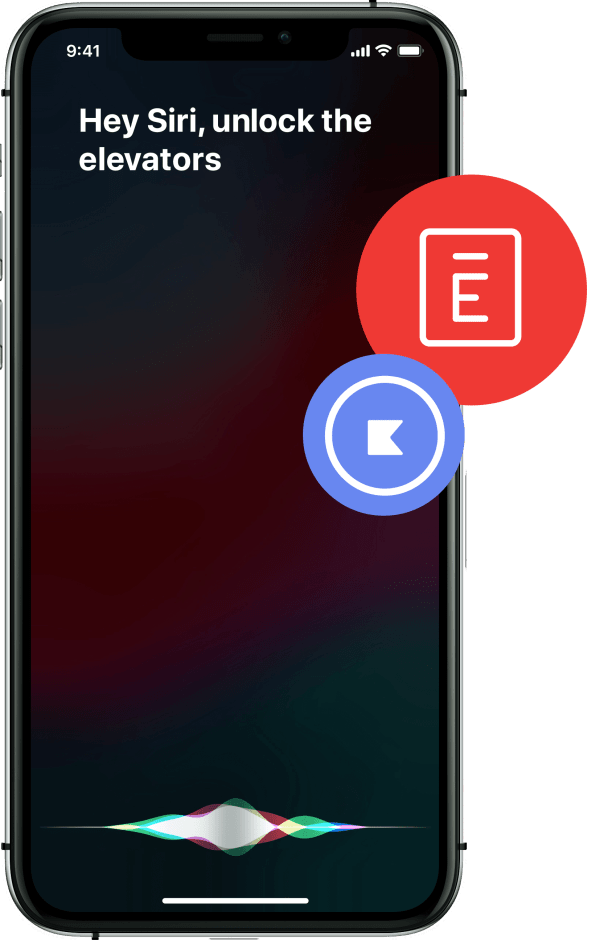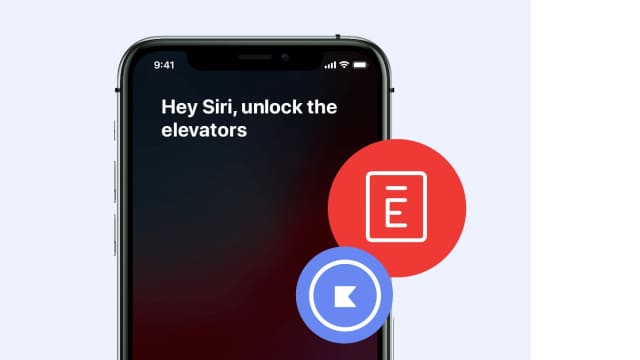As an IT manager, what is your top priority when it comes to security?
Well a few things that certainly come to mind. Reliability is one of the most important ones. Can I trust the system? Do I know that it's going to stay up and be reliable for me? And the second is since we're a pretty small company (about 160 people) a big priority for me is whether it is something that we can manage. That manageability piece is really critical because security is not easy. We don't have a full-time security staff so we have to bring in tools that will help to solve that problem for us. Kisi is part of that as well. We need to be able to self implement without a huge amount of costs. So a system that is easy to manage is critical for us.
How have you used Kisi in your workspace to enhance security? Any unique ways of using the platform?
We've done a couple of things. We switched when we moved into our new office here in San Francisco and we decided to go completely badge free. We did pilot install of Kisi at our old office, and decided to do a full install here. We swapped out all of the badge readers in the whole space. And then we actually also worked with our building management because they like the system so much. They were so impressed with it that they decided to roll it out across the entire building. So now we have this kind of shared implementation of Kisi with our building management and then in our own office.
Then we recently implemented Kisi into our elevators which was actually a nontrivial task as it turned out! I have a whole write up about it that I'm going to put in a blog post. But basically, doing anything with elevators is pretty insane. It's very costly and very complex. But using Kisi, we were able to work with our elevator tech and kind of be creative with some converter and cable adapters and all these things to make it work and make sure that it would be safe and secure. That project has been working really well now for the last couple of months.
We're also embarking right now with a Kisi integration with the visitors product. And so the idea there is that with Envoy, someone can, for example, pre-register to come and visit an office. And when they register they'll receive a link from Kisi. They basically get provisioned access to a certain number of doors while here for their visit at our office. We're pretty excited to roll that out. Different types of visitors can get different door access. For example, a contractor might have access to a couple of additional rooms, whereas an interview candidate, maybe they get access to the bathroom door and the elevator so that they can get up to the interview room.
How many doors have Kisi readers throughout the Envoy office?
We have about 15 doors installed with readers. The nice thing about Kisi is that we are also able to secure another 10 doors in the building that we decided not to deploy readers because they're lower use doors. And so for that case, people can just open up the app when they need to to get in. So there’s a total of 25 doors in this space secured by Kisi. We also rolled this out at our Kansas City office, which is in a coworking space. We worked with the coworking company to replace the door locks on the front door and the two suites that we have there. So there's this continuity for employees who are in our Kansas City office and come to San Francisco for a week, everything just works smoothly for them.

You mentioned before that some people at Envoy have also built their own shortcuts into the Kisi integration. Can you elaborate?
Yes, that's right! Some of our employees built a Siri shortcut into the Kisi integration. This is actually not a necessary feature but it’s still pretty cool. You can walk up to one of our elevators and say, ‘Hey, Siri unlock the elevators’ and it would use the Kisi API and that user's API token to send it an unlock command to unlock the fourth floor in the elevator.
How has this customization supported the overall office operations and security? Can you expand on the effect Kisi has had on the general operations?
One of the things that definitely stands out is that we have a clearer picture of the security of our office. I find that security systems are usually this black box that has a whole bunch of key cards. You assign those out and you don't really know what happens with them. Where did that one key card go that you gave that contractor three weeks ago? Is it still valid? All of that mystery or confusion around who has access is gone because Kisi makes it really clear. And because it's all in one place it's very easy to manage. Secondly, it's empowered more of our people to be able to give access in a safe and secure way because there's different access levels.You can be a manager of a group but that doesn't mean that you're a full admin of the entire place, which is another thing that’s pretty different from previous security systems that we've used.
Kisi has democratized security in a way that's safe for us and for our operations team, which I really appreciate.
Lastly, people just like the fact that they don't have to carry around badges and they don't even have to take their phone out of their pocket. You just walk up to a door and wait a couple seconds and it unlocks. I think on the whole the net increase in user satisfaction is the fact that we are badge free. We're really proud of that here and employees really appreciate it.
Have you used like any of the reporting features in the Kisi dashboard? Like the heat map or any of the other analysis tools to monitor traffic throughout the office?
I’ve used some of the analytics features just from a curiosity perspective. I use the alerting features more. And the learning has actually been really valuable on critical doors. We're opening up another floor and, while we're in construction, we get alerts when contractors are coming in and out, so that's been helpful. I'm doing some analysis of our Kisi data right now. Historically, most of the doors were unlocked during business hours and so the data wasn't as valuable from that perspective because 80% of the employees never really had to badge to get through most of the doors.,
However, a couple months ago we shifted to having the doors locked all the time by default, even during business hours. Now people need to badge even when they go into the hallway to the restroom and come back in, so they need to be able to still get around easily. So I will probably start using the analytics features of Kisi a little bit more.
How do your employees/co-workers feel about Kisi being used at your workspace?
People really love that we're a badgeless office. It takes a little bit more training during onboarding than traditional badges or key fobs. Sometimes even after onboarding an employee will be struggling with Kisi and I'll walk them through it, make sure that the permissions are on and then show them how they can actually leave their phone in their pocket and the door will open right when they walk up. And they have that ‘aha!’ moment and they're like, ‘This is amazing!’ So while it might sometimes be more complicated to onboard employees who aren’t familiar with the technology, overall employees really appreciate us going badgeless.
The other thing that people have started loving recently is Kisi’s new feature of being able to use other cards to unlock.We have a couple of users who are using their Clipper cards here (their transit cards). We also have one user who is using their credit card. Their AMAX is their office key. Which is pretty cool! And they love the convenience of that. As a company we've limited uses like this mainly because we don't want to get caught up setting up every employee with that kind of customization, cause then you're like back to setting up hundreds of badges again. But for limited use, people were really enjoying that too.
What is one tip you have for anybody looking to customize with Kisi?
We focus a lot on on the visitor experience. When people walk into the front door of an office we extend that idea of creating great experiences across our entire workplace and business. From my perspective, the reason why Kisi and other customization platforms are so important is that we think about the overall employee experience. Creating these customizations, creating these integrations, makes sure that this office is a functional one. I think that creates an overall better experience for the employee.
Every company is going to be different. So I guess my top piece of advice would be to think about that employee experience and what that looks like at your workplace. And then from that you should be able to determine what integration makes sense. How do you use something like Kisi or other security platforms? How do all of those pieces fit together? And I think that holistic sort of thinking about the employee experience in the workplace will make for a far better implementation.
What other tools will you recommend other businesses to pair Kisi with?
Yeah, so once we get the integration done Envoy visitors would be a great a great thing. As I mentioned, density I think is, is, is really great, is a great like pair in terms of having a that sense, that understanding of occupancy and and like tying that to access control.
We use Google directory for all of our management tasks. So that integration with Kisi works really well for automated provisioning. That's a little bit more in the weeds, but that's definitely a key piece. And secondly, having some sort of camera integration. We use UnFi cameras, and we would love to integrate those with Kisi.





